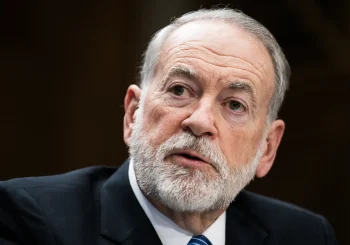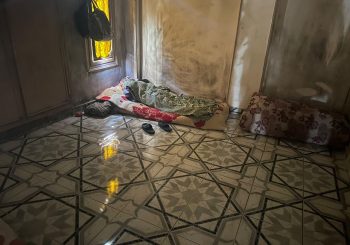Rebel forces in Damascus have announced the capital city’s liberation from long-time ruler Bashar al-Assad after government forces withdrew. This development follows the rebels’ earlier success in capturing the city of Homs, signaling a significant shift in the 13-year Syrian conflict.
Reports suggest that Bashar al-Assad, 59, has left Damascus by plane to an unknown destination, according to Reuters. The Syrian military has not yet issued an official statement regarding the rebel takeover or al-Assad’s apparent removal from power.
Rebel Broadcast on Syrian State Television
In a symbolic move, Syrian rebels aligned with Hayat Tahrir al-Sham (HTS) used state-run television and Damascus Radio to declare the end of Bashar al-Assad’s rule. The broadcast called on citizens and fighters alike to “preserve the property of the state of free Syria,” urging unity across all sects and religions.
“Long live Syria, free and proud. To all Syrians, whatever their sect,” the broadcast concluded.
Social media footage also showed thousands of inmates being released from Saydnaya Prison, a facility infamous for the alleged torture and execution of al-Assad’s opponents.
Abu Mohammed al-Julani, leader of HTS, announced that all public institutions in Damascus would remain under the supervision of the former prime minister Mohammed Ghazi al-Jalali until a formal handover is arranged. This decision appears aimed at preventing chaos and safeguarding state infrastructure during the transition period.
The former Syrian prime minister has remained in Damascus, promising to help guide the country toward stability. In a speech shared on social media, al-Jalali expressed hope for a Syria that can rebuild relations with its neighbors and the global community.
Syirian opposition leader Hadi al-Bahra also addressed the public, emphasizing that Damascus remains safe and urging citizens to avoid violence. “There will be no cases of revenge or retaliation, and no violations of human rights. People’s dignity will be respected and their dignity will be preserved,” he wrote on X (formerly Twitter).
What is HTS
HTS has a complex and controversial history, rooted in its establishment in 2011 as Jabhat al-Nusra, a direct affiliate of Al Qaeda. Initially regarded as one of the most effective and deadly groups fighting against President Assad, its ideology, driven by jihadist beliefs rather than revolutionary fervor, set it apart from the broader rebel coalition under the Free Syria banner.
In 2016, the group’s leader, Abu Mohammed al-Julani, publicly severed ties with Al Qaeda, dissolving Jabhat al-Nusra and rebranding as HTS after merging with several other militant groups. Unlike the self-styled Islamic State (IS or ISIS), HTS has confined its ambitions to establishing fundamentalist Islamic rule within Syria, rather than pursuing a broader caliphate.
A Look Back: Bashar al-Assad’s Reign

Bashar al-Assad, who came to power in 2000 after the death of his father Hafez al-Assad, presided over a tumultuous era defined by the 2011 uprising that spiraled into a protracted civil war. Accusations of human rights violations, including the use of chemical weapons, marked his presidency, leaving a legacy of division and destruction.
The war has claimed hundreds of thousands of lives, displaced millions, and left Syria fractured. Key moments in the conflict include the 2013 chemical weapons attack in Eastern Ghouta, the rise and fall of ISIS, and years of Russian military support for al-Assad’s regime.







Comments (0)